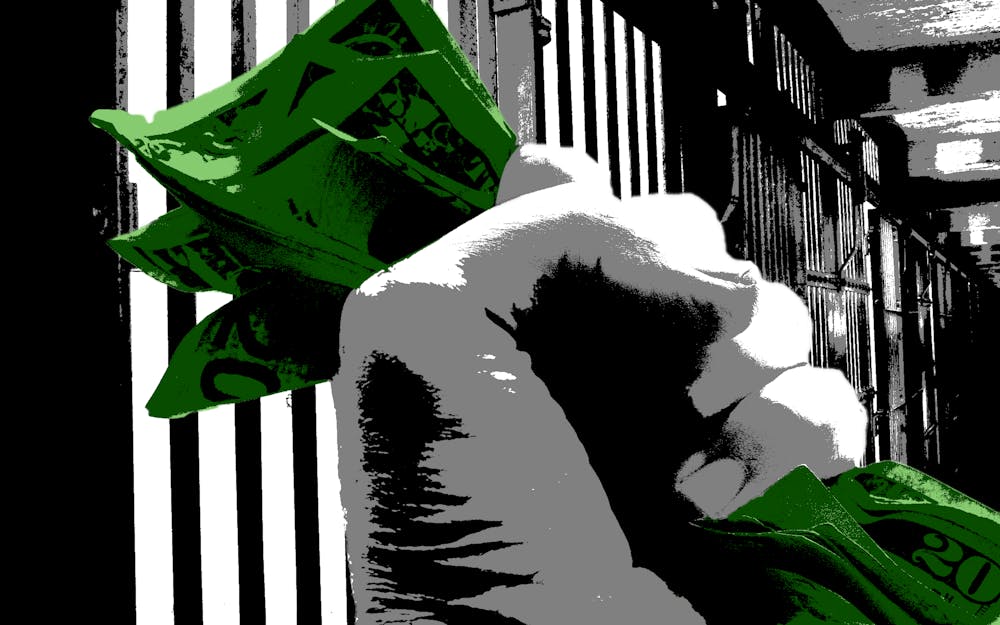President Biden signed an executive order to eliminate private federal prisons on Jan. 26. Biden’s decision sparked conversations about how the U.S. approaches mass incarceration and how the carceral state has leached into all sectors of society. It’s a topic prison reformists and abolitionists have been shining a light on for decades.
In Indiana, mass incarceration and its poisonous arms have seized many lives. Between 1980 and 2016, the prison population in Indiana quadrupled. As of 2017, Black adults represented 34% of incarcerated people, despite only being 9% of the population. Indiana is imprisoning people at a higher rate — 723 per 100,000 — than the U.S. average, which is the highest in the world.
Mass incarceration is a tool used to inflict violence and maintain the institutions of racism on Indiana’s communities of color. Indiana’s leaders must drastically change policing and end mass incarceration.
Indiana legislators lust for policing and prisons, but why? According to the Indiana Election Division, private prison companies GEO Group and CoreCivic have contributed over $185,000 to state political committees. $19,000 has been donated federally to Indiana’s Republican members of Congress.
It gets worse.
In September 2005, New Castle Correctional Facility became Indiana’s sole private prison, operated by GEO Group. In the year before and after the contract’s establishment, Indiana legislators received $31,100 in contributions from GEO Group’s political action committee. It isn’t a surprise Indiana legislators support private prisons and increased policing when there’s a kickback involved.
People in prisons also contribute to the state’s revenue streams through severely underpaid labor. Various items — including PPE, clothing and furniture — are available for purchase through the Indiana Department of Corrections. Wages are a mere $0.12 to $1.625 per hour, much lower than the federal minimum wage of $7.25 per hour. Under the 13th Amendment, being convicted of a crime still allows slavery — in this case extremely low wages — as a punishment.
When discussing policing and mass incarceration, it is important to remember its effect on all parts of society, not just on those who are currently incarcerated. By examining the effects of incarceration on neighborhood units, researchers found “mental health is similar for individuals with and without a history of incarceration.”
IU Maurer School of Law professor Jessica Eaglin touches on these ideas in her research on criminal justice debt and the socioeconomic collateral consequences of incarceration. “What are the support, sort of infrastructures, that we have to prevent people from entering the carceral state in the first place?” Eaglin asked.
Preventing incarceration looks different in every state. Indiana must tackle mass incarceration and its broader criminal justice system through various sustained efforts, such as legislation focused on positively transforming policing, prisons and life post-incarceration.
“Once people have touched the carceral state, it's very difficult to stay sort of out of its reach,” Eaglin said.
At the forefront of the fight against mass incarceration, the ACLU of Indiana released its Blueprint for Smart Justice in 2019, which serves as a guide on criminal justice reform with a path to reducing incarceration by 50% by 2025. Significant policy priorities consist of ending all admissions for drug possession, reducing time served for specific charges and instituting alternatives to sentencing.
Dismantling the carceral state also includes massive police reform and a shift in budget priorities, including bias training, de-escalation training and reducing the number of officers in communities. More than a quarter of in-school arrests in Indiana K-12 schools are Black students, despite only being 14% of the student population.
Despite activists’ best efforts, Indiana Republican lawmakers are determined to expand the criminal code. After the 2020 Black Lives Matter protests, numerous bills were introduced in the General Assembly to broaden the definition and penalties for rioting. Legislation includes SB34 and SB198 to bring harsher penalties to a broad definition of unlawful assembly and SB187 to protect statues and monuments from damage and vandalism.
It is no surprise that Indiana — with its longstanding history and roots of institutionalized racism — has entangled itself with mass incarceration. By hiding under the guise of public safety and patriotism, Indiana state legislators can continue to strip away constitutional rights and uphold white supremacy as private prison corporations line their pockets.
Alessia Modjarrad (she/her) is a junior studying Economic Consulting and Law and Public Policy. She is the president of the College Democrats of Indiana and works as a political operative on various Democratic campaigns.






